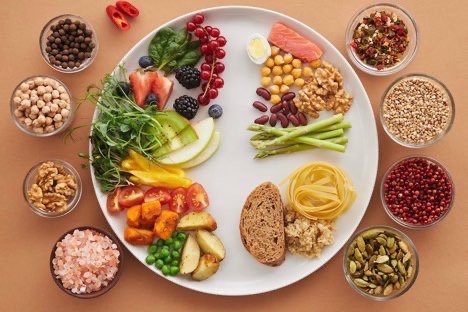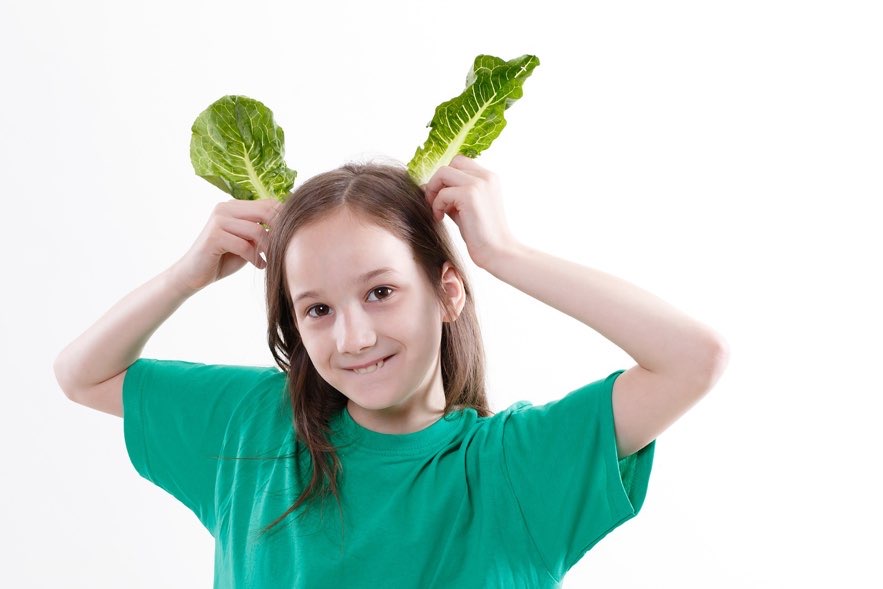Not many people know, how cow milk protein sensitivity appears to be? Often parents fail to find why their baby is so fussy. The reason can be as simple as cow milk allergy.
In this article we will give a clear idea on how to spot if your kid is having cow milk protein allergy ? How to draw a distinction between cow milk intolerance and allergy. And also how to deal with it.
WHAT IS FOOD ALLERGY ?
We all are born with immune system. This fights against germs and prevent them from entering our body and causing disease. But sometimes this immunity, perceives certain food items as foreign and reacts to it.
This reaction to specific foods shows up externally as allergy. It is called food allergy. This food allergy is arguably one of the most common form of allergy in children.
WHAT IS COW MILK PROTEIN ALLERGY ?
Basically it is a type of food allergy, where body of a person develops allergic reaction to cow milk protein. Every time this person takes cow milk or any other cow milk derived food product, s/he shows up unwelcome symptoms and signs.
The proteins present in cow milk which are offenders for CMPA are ‘Casein’ and ‘Whey’ protein groups.
HOW COMMON IS COW MILK ALLERGY ?
It is indeed common. Being said that, around 2-3 % of infants ( kids less than one year age ) suffer from cow milk allergy.
Now a days as parents tend to become more and more aware, greater number of cases are coming out on surface than before.
WHO SUFFERS FROM COW MILK PROTEIN ALLERGY ?
It is a disease of kids. In general it starts to appear as soon as initial few months of life ( i.e. less than 6 months of age ). As these children grow up, symptoms wane, and then disappear by 5-6 years of age.
Those kids in whom, one of the family member has allergic tendency, is more at risk.
PRODUCTS CAUSING COW MILK PROTEIN SENSITIVITY
Milk and milk products causing CMPA are listed below.
- Cow milk
- Cow milk based formula
- Cheese
- Butter
- Bread
- Cake
- Biscuit
- Ghee
- Curd
- Buttermilk
- Goat / Sheep milk
It is important to note that if a baby has allergy to cow milk protein and mother takes cow milk or cow milk derived products, then this may eventuate symptoms in baby.
Important note
About 10-15% of babies who have cow milk protein allergy are allergic to soy protein as well.
WHAT ARE SYMPTOMS OF CMPA ?
Cow milk protein sensitivity symptoms may be mild in few kids. These children can take certain milk derived products safely, if it is baked or altered in some other way. Whereas in some kids it is very bad and occasionally life threatening.
Symptoms of cow milk allergy may transpire in following two ways

Types cow milk allergy symptoms presentation
Here person develops symptoms soon after taking cow milk, within few minutes to one hour.
Most of the times child develops symptoms after few hours of taking cow milk. However this duration may range from more than 24 hours to even 1- 2 weeks after cow milk ingestion. Hence parents find it hard to correlate with.
Symptoms of CMPA are listed below
- Vomiting – Repeated vomiting after ingesting cow milk or related product may indicate cow milk allergy.
- Regurgitation of milk to mouth – This is a frequent issue in babies with cow milk protein allergy. It happens when a baby is started on cow milk based formula. It may also happen in few cases, when baby is allergic to cow milk and lactating mother takes cow milk or cow milk product. ( regurgitation of milk is common in normal newborns too, and is not exclusive to CMPA )
- Colic pain with excessive cry – There are many reasons why a baby has excessive cry, and colic pain is one predominant cause. Cow milk allergy can cause colic and excessive cry in a baby. It happens especially when the mother of allergic baby, takes cow milk derivatives.
- Fussy baby – Many often parents puzzle over why their kid is so fussy. They do all possible tests to get nothing. It is important to keep in mind that cow milk protein allergy in babies also what leads to fussy baby.
- Bleeding in stool – Bleeding per rectum through stool is sometimes the one and only symptom a child presents with. When a doctor asks retrospectively then cow milk is the guilty party.
- Diarrhea – Digestive problem in cow milk allergy manifests commonly as diarrhea or loose stool. This diarrhea may be associated with abdominal cramps.
- Constipation – Keep in mind that, rarely it can show up as constipation.
- Malabsorption – This may cause malabsorption of nutrients from intestine as well, if it remains undiagnosed for long term.
- Growth failure – Because of chronic deprivation of a kid from taking calcium, vitamin D rich and other nutrient rich cow milk, they suffer from nutritional deficiency and growth failure addedly.
- Skin atopy / skin allergy – Skin allergy in the form of rashes and hives after taking cow milk is a sign of allergy.
- Peri-oral Rash – Itching and tingling around mouth/ lips subsequent to cow milk intake, is a possible symptom of cow milk allergy.
- Breathing difficulty and wheezing – Cow milk ingestion can cause narrowing of airway. This leads to difficult in breathing and wheezing sound. Symptoms are similar to asthma.
- Anaphylaxis – Most severe complication of cow milk allergy is anaphylaxis. It is a severe allergic reaction with breathing difficulty, swelling of lips, face, throat etc. As it is a life threatening emergency, parents should immediately seek medical attention.
DIFFERENCE BETWEEN LACTOSE INTOLERANCE AND CMPA
Lactose intolerance is when someone can not digest lactose ( a type of simple sugar ) present in milk. It is ascribed to absence of an enzyme called lactase in intestine.
Lactose intolerance is when someone can not digest lactose ( a type of simple sugar ) present in milk. It is ascribed to absence of an enzyme called lactase in intestine.
|
Cow milk allergy |
Cow milk intolerance |
|
1.Due to allergy to Whey and casein group of proteins present in cow milk. |
1.Due to inability to digest lactose, a sugar found in cow milk. |
|
2. The basic mechanism is allergy |
2. It is not an allergy but indigestion |
|
3. Cow milk allergy symptoms are systemic, which involves skin, gut and lungs |
3. Symptoms of cow milk intolerance are related to only gut |
|
4. Symptom resolves after 5-6 years |
4. Symptoms resolves in days to weeks in post diarrhoeal lactose intolerance. Or may stay lifelong if it is congenital ( by birth ). |

DIAGNOSIS OF CMPA
When it comes to diagnosing CMPA, history plays a major role. Parents sometimes will say by themselves, how symptoms in child is related to milk consumption. Or else doctor has to enquire in detail.
Though there are investigations like skin test and serum IgE level which help to reach at diagnosis, but these investigations are hardly confirmatory. Even if these test results are negative, still it can happen that child is facing cow milk protein allergy.
More reliable test hence becomes OFC ( Oral Food Challenge ) test. This is performed in two steps.
First step –
Here initially cow milk and milk related products are withdrawn from diet of a baby. If baby is exclusively breast feeding then mother is not allowed to take cow milk and related products for a month. Then symptoms of child are observed. Relief of symptoms strongly suggests CMPA.
Second step –
After this, cow milk is reintroduced slowly, by giving food with cow milk. This is done in hospital. Initially a small amount of cow milk is introduced and if child is asymptomatic then cow milk intake is increased steadily step by step.
If still no symptoms then normal diet with cow milk is continued for 2 weeks and observed if child develops any symptom.
OFC positive is confirmatory test to say it is cow milk allergy.
TREATMENT
Treatment of cow milk protein sensitivity is as simple as avoiding cow milk and all its derivatives. Breast feeding mother of such babies should refrain from these food items. Physician is the best person to diagnose it and not parents.
Alternative milk are soy milk, partially hydrolysed milk formulas and fully hydrolysed milk formulas. Soy milk may also induce allergy in these kids, hence best possible food is hydrolysed milk, which has simple amino acids in place of proteins
If baby is on solid foods then rice milk and oat milk are fair alternatives of cow milk to prepare baby food.
Follow up
Baby is followed up every 6-18 monthly to see if s/he is still allergic. Over time allergy symptoms come down. By the time kid is 6 years old, in almost all cases, child outgrows allergy and can have normal foods.
Conclusion
Cow milk protein allergy is a common problem in infants and children. But often the diagnosis is missed, especially in small babies.
Hence share this article with maximum people and make them aware of the same.
Caution
All the informations provided here are for educational and awareness purpose only. Kindly do not use these as alternative to medical consultation.




